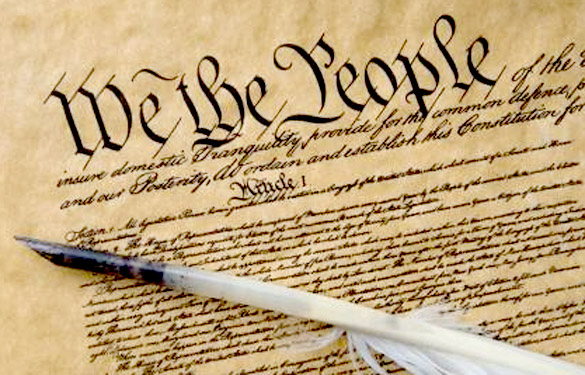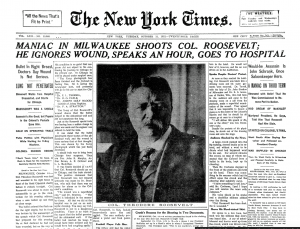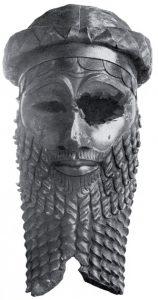Every year there are dozens of scholarly books and articles that are published describing the founding period of the United States. The debate between Federalists and Anti-Federalists over the ratification of the Constitution is one of the topics often discussed. Both the Federalists and the Anti-Federalists presented arguments that have had profound effects on subsequent American history. It is important for us to learn the full nature of their debate and how it has influenced our views on American government.

“Nothing is more certain than the indispensable necessity of government, and it is equally undeniable, that whenever and however it is instituted, the people must cede to it some of their natural rights in order to vest it with requisite powers.”1 Federalists, the supporters of the Constitution, had the support of some of the most prominent men in America, including Benjamin Franklin and George Washington. Moreover, prominent political philosophers of their time, such as Alexander Hamilton, James Madison, and John Jay, published a series of essays under a pseudonym “Publius.” These essays were widely published in newspapers throughout the nation. They explained the meaning and the virtues of the Constitution and countered the powerful arguments of the opposing side. Today, they are known as The Federalist Papers. These documents are important American contributions to modern political theory.2

Patrick Henry, a famous Anti-Federalist, was well known for his quote, “I know not what others may choose but, as for me, give me liberty or give me death!” In order to combat the attention given to those who had different opinions, the Federalists deemed their opponents as “Anti-federalists,” giving the message that individuals that were not associated with the Federalists had nothing to offer besides negative opposition and chaos. However, Anti-Federalists did have serious and intelligent arguments of their own. They presented themselves as the loyal defenders of the principles of the Revolution. Moreover, they believed that the Constitution would betray the principles of freedom by establishing a tyrannical central power in the new government.
The main claims of Anti-Federalists were that a federal government would make unfair distinction among the citizens, raise taxes, abolish the states, and end individual liberties.3 According to them “the constitution was the basic mistrust of human nature and the capacity of human beings to wield power.”4. They believed the Constitution lacked a much needed Bill of Rights, a concern that became one of the most important sources of their opposition, with at least nine out of ten Anti-Federalists wanting a written Bill of Rights.5

At the heart of the debate between Federalists and Anti-Federalists was a battle between two fears. The Federalists were afraid of disorder, anarchy, and chaos; they believed that a constitution would prevent these catastrophic events. The Anti-Federalists were not anarchists and they too recognized the need for an effective government; they believed that the greatest threat to the future of the United States was the government’s potential to become corrupt and seize more power until its tyrannical hand stretched across the country and completely dominated the citizens.6
Despite the Anti-Federalist efforts, the Constitution was ratified in 1790, but during the ratification debate, Madison conceded that a bill of rights was needed. Federalists assured that the first step of the new government would be adopting a bill of rights.
- John Jay, Federalist Papers no 2, (1787), 1. ↵
- Alan Brinkley, American History: Connecting with the Past Volume 2, 15 edition (New York: McGraw-Hill Education, 2014), 145. ↵
- Alan Brinkley, American History: Connecting with the Past Volume 2, 15 edition (New York: McGraw-Hill Education, 2014), 146. ↵
- Alan Brinkley, American History: Connecting with the Past Volume 2, 15 edition (New York: McGraw-Hill Education, 2014), 146 ↵
- Main T. Jackson, The Antifederalists: Critics of the Constitution, 1781-1788 (New York: W.W. Norton, 1974), 159. ↵
- John H. Aldric and Ruth W. Grant, “The Antifederalists, the First Congress, and the First Parties,” The Journal of Politics, vol 55 no. 2 (1993): 295. ↵



71 comments
Michael Hinojosa
An amazing article for anyone trying to understand the federalist papers and the context that surrounds it too! I won’t lie, no matter how many times it was hammered into my head from middle to high school I was never really able to understand the difference between the anti-federalists and the federalists, they always just seemed the same to me! But after reading this article I feel like now I finally know the difference; so thank you so much!
Hali Garcia
I like this article because after reading the Federalist Papers, I now have a better understanding of what they were saying. This article clearly states what each side was for and what they were against. The Federalists wanted a strong central government and the Anti-Federalists feared that because they thought it would betray the people. Overall, this is a very clear and informative article.
Noah Bolhuis
This is a great article for political science and American Government classes. It is important to know what the founding fathers thought and how they interpreted our system of government. This article did a good job at showing what both sides of the argument said and thought back in the 18th century.
Samire Adam
This article was a great read because it is the first source that I have read that presents both sides as having viable arguments. Of course by today’s America we can see by the success of the Federalists that we have adopted their ideologies of a central government and the Constitution. But I think that it is also important to see that because the other side was labeled “Anti” does not inherently make them wrong, they just had different values.
Gabriela Murillo Diaz
This is a topic we hear constantly in American government. Every lesson on American government is started with Federalists vs the Anti-Federalists. While it is a topic I feel is constantly reiterated, I still found the article interesting. This article gives a good explanation of the conflict our founding fathers had with democracy and the creation of it for our modern society. The length of it was perfect because it provided enough information without drawing out the details and making it lengthy.
Arieana Martinez
It was refreshing to read about the infamous Federalists v. Anti-Federalists conflict that jumpstarted the butting heads of democracy. I find these conflicts are paralleled to the conflicts we have today, showing that conflicts are healthy for democracy, so people can be exposed to new ideas and find different mindsets to improve our society. Great read to show the truth about the development of modern democracy.
Rosa Castillo
The battle between the Federalists and Anti-federalists was battle between two different reservations. The true essence of democracy is having two kinds of fears and disagreements between two sides. Similarly it is like the constant battle between Republicans and Democrats in this particular political climate. This article was interesting to read and my memory was refreshed from when I learned about this in Middle School/High School.
Robert Ruiz
I really enjoyed this article. I think it was short but insightful and in a way foreshadows the political world we live in today. I think the Federalist meant good, but the anit-federalists were on to something. Today, we see failures in many of our government institutions ( like our banking system) and people in power. I think it is very important to protect individuals rights and promote ideas that the anti-federalist had.
Victoria Rodriguez
I find it so interesting when we see history in retrospect and identify the people the steadily predicted our present day. The antifederalists were probably considered crazy or over analyzing the documents they were drafting. Both positions saw the considerable outcomes of documents drafted. This is also the best example of freedom of speech in the United States early history. without both positions we would not have the democracy we would have today.
Greyson Addicott
The Anti-federalists seem to have known exactly what was happening when they published their papers. They predicted the rise of Judicial Review by the Supreme Court, the encroachment of basic, sovereign rights that the States once so proudly operated, and they seemed to warn us that the Federal government would eventually become the only government that matters. They were right on all accounts. The fact that our States cannot even elect their own representatives anymore is a perfect example of this. What is a state without representation in the government but a sad, lowly administrative district? Of course, the Antifederalists of the early 19th century did all they could to stop the Union from becoming as despotic as it is today, and for that, we should be extremely grateful.